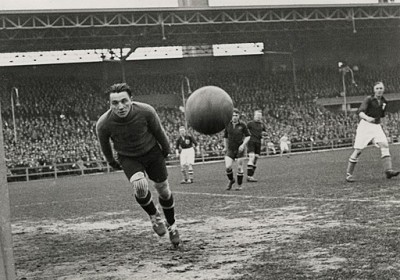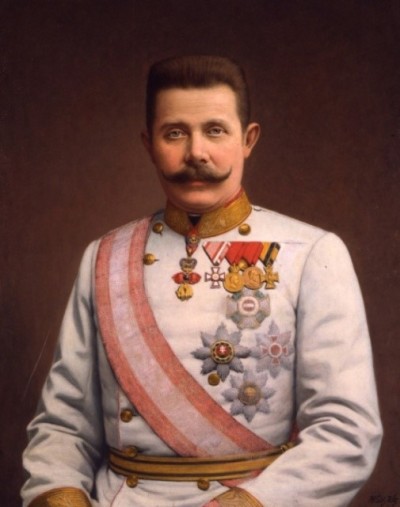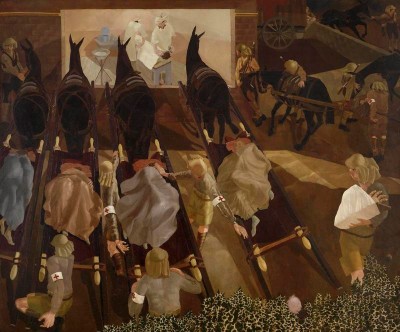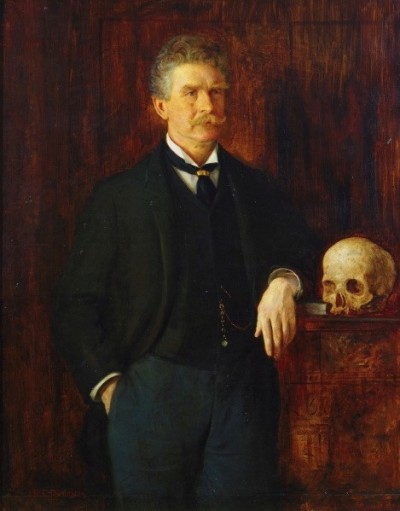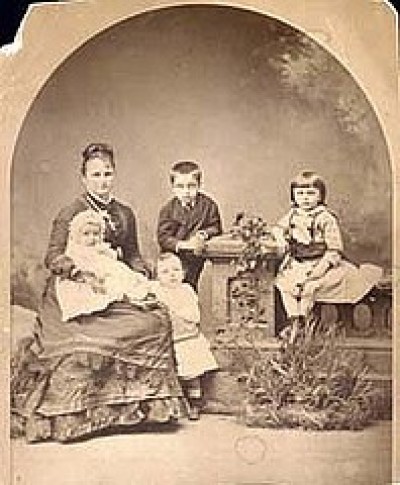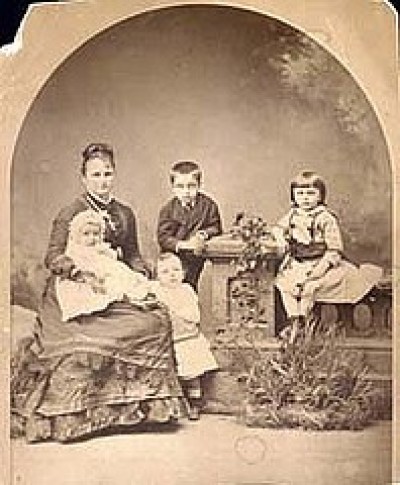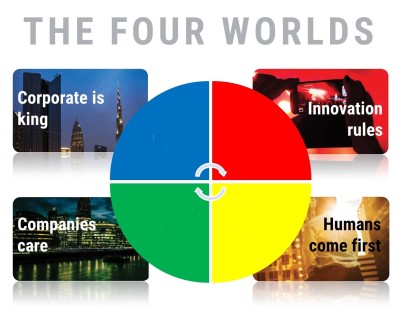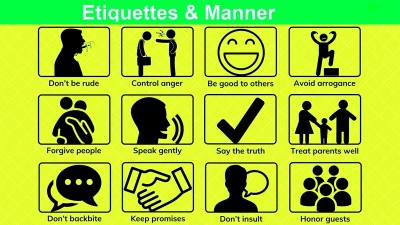Course description
Football: From Crime to Multi-Billion Dollar Global Business
In this speedy jaunt through the history of football, there will be little time for us to study the tactics of the great Pele or Maradona. You can read about Maradona on the GED site. But, for now, we will look at the early history of the game – which was criminalized in England – and onto its professionalization, before taking a glance at its commercialization into a multi-billion dollar global business.

So, where did it all begin? These days, the dangers of football are usually because of the fans at matches. Some people go to football stadiums to make trouble. They want to fight with the fans of other teams. In the 1980s, this was especially true of English football fans and many foreign clubs did not want them to travel to games in their countries. They were difficult to control at the football ground and also in the town centre before and after the match. This was a new thing in football – dangerous crowds in the streets, drunkenness, fighting and even death.
But, in fact, that is not true. Football has a very long history in Britain and the game has always been dangerous. From the thirteenth century, people have written about football players dying. For example, in 1280, Henry Ellington ran against his friend in a game to get the ball away from him. Sadly, he ran into the knife that his friend was wearing and died a few days later. Other footballers often fell and killed themselves on their swords when they were playing the game. In 1314, the King of England, Edward the Second, complained that very large football games often caused problems, although he did not say what these were.

Perhaps Edward was unhappy that young men spent too much time playing football and so did not practise archery. This was a very important hobby for young men because they needed it in wartime. King Edward said that all young men must buy a bow and arrows and every village must make a place for them to practise. When Edward thought that football was more popular than archery, he stopped the game. His son, King Edward III, did the same thing in 1331 before his army attacked Scotland. A later king, Henry IV did more in 1410: when people played football, he sent them to prison for three weeks. Even as late as the seventeenth century, Oliver Cromwell tried to forbid football as well as horse racing. Of course, when he died in 1658, the game started again and was as popular as always.
However, war had changed before Oliver Cromwell became the governor of England in the mid-17th century. Kings did not need young men to practise archery: now soldiers had guns. So, why did governments still try to stop people playing football?
This happened as late as the middle of the nineteenth century when soldiers shot at footballers in many towns in England. It was not the game. Rich young men at private schools played football and many teachers thought it was good for their minds and bodies. The difficulty with the game was that many poor young men got together in the same place, perhaps drank, possibly broke windows with their ball and were sometimes out of control. The rich were afraid. It was not because the players broke their own bones, but broke other people’s.
 So, we can see that football hooliganism is nothing new. Football has always worried people. This changed though when football became a professional sport in the late nineteenth century, although it’s hard to imagine nowadays that this was a lengthy and difficult journey.
So, we can see that football hooliganism is nothing new. Football has always worried people. This changed though when football became a professional sport in the late nineteenth century, although it’s hard to imagine nowadays that this was a lengthy and difficult journey.
Let’s look at the long, hard job that William Sudell had to establish football on a professional basis.
William Sudell joined Preston North End Sports Club when he was just seventeen years old in 1867. At that time, Preston North was not only a football club. There were other sports too: swimming, cycling, cricket and more. Sudell was good at many different games. In fact, he only played three football matches for the club, but he also became the chairman in the mid-1870s and wanted Preston North to focus on football. In 1880, Preston forgot about other games and, the next year, Sudell became the first manager of the football team.

Sudell did not get a salary from Preston North. He worked at a local cotton mill. At first, the young William Sudell was an ordinary worker, but because he was good at mathematics and money, he eventually became the manager. This job was important to him and to Preston North End Football Club, because he could give jobs to some of the players in his factory. From 1883, he got the best Scottish players on his team and paid them salaries at the cotton mill, although they were not doing much work there. Preston North did not have a lot of money and Sudell could not get excellent players for the low salaries the club could pay. The ‘jobs’ at the cotton mill made his football team more interesting for them.
In 1884, Preston North won an important match against a London team, called Upton Park. The losers complained that Sudell used professional players – footballers paid to play the game – and the Football Association (FA) said Preston must stop. However, Sudell thought differently. He left the FA and many other teams from the north of the country joined him. Teams from the south of England saw football as a hobby, a game – not a job. But Sudell finally won this fight and could use paid players if they were born or lived ten kilometres from the club.
Sudell’s Preston North End now became the best team in the country. In 1887, they beat Hyde 26 – 0, the largest win in football history in England. They did not lose a match that season. Sudell was a very different manager from all the others in the country. For example, he used a blackboard to explain tactics to his players for the first time in football history. Now, of course, this is usual, but at that time it was a complete change from other teams.

In 1888, Sudell helped to make the Football League. This was important because teams often cancelled matches and some teams did not play others every season. The idea was not Sudell’s but came from William McGregor, the manager of Aston Villa. However, he needed Sudell’s help because Preston North End was the best club at the time.
In 1888, Preston North won so many matches that they knew they were the top of the League a long time before the season finished. They could now focus on the FA Cup. In 1887, they lost the final against West Ham, but the next year, they beat Wolverhampton Wanderers to win it.
That was the last time that Preston won the League or FA Cup. Although Sudell was the first manager to pay players, the club was not rich and could not give them as much money as other teams. So, they did not join Preston and the team never won a championship again.
In 1895, the cotton mill where he was manager found that Sudell was paying players’ salaries from company money. He did not use any of this for himself, but he was stealing it. And it was a lot of money! He went to prison for three years.
When he was free again, Sudell left England for South Africa. He worked for a newspaper there as a sports journalist and helped to make football popular in Africa for the first time. He died in Cape Town in 1911.
So, now we know how football became a more professional and better organized sport. But how could Sudell imagine a century ago that footballers could earn huge salaries and teams become major businesses?
Well, which Premier League team do you support - Manchester United, Chelsea, Manchester City, Arsenal? These football teams, the best in the Premier League, now have fans around the world. The players are as famous for their glamorous lifestyles and their huge salaries as they are for their football skills. Premier League makes over £1 billion every year from showing matches on TV. As fans, we can watch excellent football played by superstars.

You would think everyone would be happy. Some fans, however, are worried. Most football teams lose money every year as they struggle to win. Salaries go up but so do ticket prices, so ordinary people can't afford them. The top teams have wealthy foreign owners who can buy the best players and ensure that they win.
So, how did the English Premier League become the richest and most popular football league in the world?
Although football is now a global game, belonging to every country in the world, it was created in England. As we know, players from different parts of England met in a pub in London in 1863. They started the Football Association and wrote the rules of the modern game. At first, it was an amateur game – players were not paid. Only in 1885 were they allowed to get a salary. Three years later, in 1888, the Football League was created, the first in the world.
The league was very competitive but the Football Association had strict rules. Clubs shared money so no team would be much richer than another. Owners couldn't make money and players also had a maximum wage, £20 per week. In 1961, the maximum wage was abandoned and many players soon made £100 per week or more. People worried that this would ruin the competition – the clubs with the most fans could pay for the best players and always win. Gradually, more money was coming into football. However, it was television that changed everything.

It was 1990 and football was in trouble. In the 1980s, football fans had died in disasters in unsafe stadiums. English football teams had been banned from European competitions because of hooliganism. Desperate to win, clubs had also started to spend more money on salaries – money they didn't have.
The top football teams were restless. Money was coming from television but, because of the Football Association's old rules, it was shared between ninety-two clubs. Was this fair? After all, the big clubs like Manchester United and Liverpool had the most fans and played the most games. Shouldn't they get more of the money?
The owners of the top teams met with the television companies. TV companies, especially the new satellite TV ones, wanted a deal with the big names in football. They knew that football fans were loyal and would pay to see their favourite teams.
In 1992, with the support of the TV companies, twenty-two of the best ('first division') teams left the Football League and called themselves 'the Premier League'. The game would be the same, except the Premier League clubs could make their own deals with television companies and sponsors. They didn't have to worry about the other football clubs or give them any money.

Millions of pounds poured into the Premier League clubs. They became well-known for their charismatic European managers like Arsène Wenger, at Arsenal since 1996, and Jose Mourinho. The game, polished and professional, was now enjoyed by fans across the world. Local fans could see the best foreign superstars play in their clubs. Even the stadiums were bigger and more comfortable.
The problem was, nothing had really changed. As more money came into football, more went out in players' salaries. Football clubs, now even more desperate to win, paid more to get the very best players. Many had terrible financial problems. Fans started to question how much the players were being paid.

The arrival of wealthy foreign owners has made this situation far worse. In 2003, Roman Abramovich arrived at Chelsea. He spent £100 million on the very best players. The next year, Chelsea won the Premier League for the first time. Sheikh Mansour from Abu Dhabi bought Manchester City in 2008. The following year, they won the Premier League for the first time! Is it all about money?
Some jaded fans think that football has changed for the worse. They believe players earn far too much money while some fans can't pay for tickets or satellite TV. It's now rare to see players with their local teams as they go to rivals for more cash. Some say it's easier for Premier League teams to buy foreign talent than to train young English players. Perhaps this is why the England team never wins!
Another major criticism is lack of competition. Only five teams have ever won the Premier League.
Is there an alternative? There are now new 'financial fair play' rules to stop football clubs spending money they don't have. This will stop football clubs going bust but will it help more teams win? The biggest teams will still make and spend much more money. The German Bundesliga is also a good model. Fans own at least half their clubs and ticket prices are kept low. The clubs don't lose as much money as English clubs.
There are already signs that the Premier League may be changing. After years of losing money under Abramovich, Chelsea made a small profit last year. Whatever happens, we shouldn't stop enjoying the Premier League for what it is: the best example of our world's most popular sport.
If you want to watch some videos on this topic, you can click on the links to YouTube videos below.
If you want to answer questions on this article to test how much you understand, you can click on the green box: Finished Reading?
Videos :
1. The history of football (6:23)
2. Preston North End (2:25)
3. William McGregor and the football league (2:08)
4. The Origins of the Premier League (6:10)
5. Internationalization of football (3:30)
6. Best Managers in football (12:14)
7. Richest football Club Owners (4:44)
8. Wealthy footballers and their Lifestyle (12:36)



 So, we can see that football
So, we can see that football 





